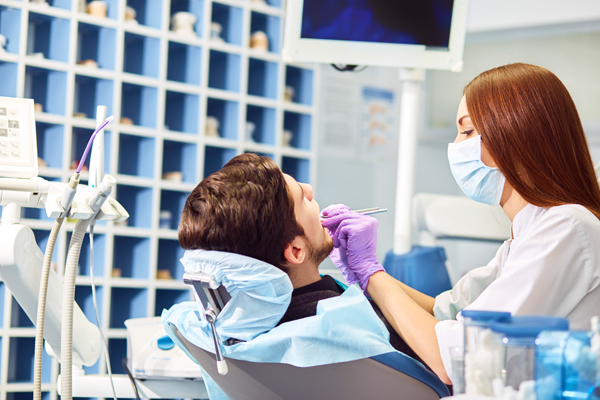Testing for Sleep Apnea and Other Sleep Disorders

A large number of the world's population suffer from a condition known as sleep apnea. In fact, it is so common that many physicians are able to diagnose obstructive sleep apnea using either an in-lab sleep study or a home test. These tests require a board-certified sleep physician who has both the training and the expertise in diagnosing and treating the condition.
Most patients who suffer from this condition do not seek treatment for sleep apnea since they are not even aware it is an issue they struggle with. Doctors do not normally detect it during routine office visits. However, there are two ways to diagnose sleep apnea. Either through a routine screening by the dentist or the patient comes in for a sleep study.
Why is it important to diagnose sleep apnea?
Getting a comprehensive study and a diagnosis is important for people who find that they are not getting enough rest. Rather than answering the question, "did I get 8 hours?" The question that patients find themselves needing to ask is "how well did I sleep?" Many patients feel exhausted during the day but have no idea that they may be dealing with a serious condition.
The exhaustion that people feel, when suffering from this condition, is legitimate and one that people need to take seriously. People who do not get enough sleep and have to operate heavy machinery, like a car, put both themselves and other people at risk. We recommend that somebody who continues to feel exhausted, even after a full night's sleep, see the dentist about a test to check for this condition.
In-Lab overnight sleep study
One way to test for sleep apnea requires that the patient stays overnight at a sleep center. There are sensors which are hooked up to various parts of the patient's body and record their brain waves, heartbeat, breathing, and movement. Doctors will typically recommend having a sleep study in a lab for more complex cases.
However, it is important to remember that any time there is an overnight study it is going to be expensive. Most insurance plans do cover some or all of these types of studies.
Home test
Patients who have high risk factors for obstructive sleep apnea, but display no other medical disorders, can actually take an in-home test. This type of sleep study allows the patient to remain in their home, comfortable in their own bed, while a small monitor to collect data as they sleep. While the testing equipment is less complicated from that of a lab, the data collected is very similar.
This data will provide the doctors with a comprehensive understanding of the patient's in-home sleep patterns. With an in-home test kit, the patient will be required to take the device back to our office, a test center or send it in the mail for review.
Call for help
If you think you have this condition, schedule an appointment with our office for a medical evaluation.
Call (636) 777-7700 today to reach Michael F. Grasso DDS.
Recent Posts
If a spouse or other loved one has been kept up at night because of snoring, it may be time to see if sleep apnea is a problem. While many people do not think of snoring as a medical issue, it can signify sleep apnea or a partially obstructed airway. Even a minor airway obstruction…
Sleep apnea makes it difficult to stay asleep throughout the night and often leads to fatigue during the day, along with other negative health consequences. Fortunately, there is an effective way to treat sleep apnea with oral appliance treatment. This is a collection of common questions about oral appliance treatment for sleep apnea and their…
Sleep apnea is a serious condition that many people suffer from. As modern medicine has evolved, there are now more options for treating it. Consulting with a dentist regarding sleep apnea is becoming popular because they have a few different treatment routes that patients can take. Dental sleep medicine is a special field that focuses on…
Dentists advise every one of all ages to get a Dental Checkup twice a year, at the minimum. However, despite this recommendation, not everyone actually undergoes check-ups this frequently, which can be risky. While most people believe that at-home oral hygiene is enough to maintain good health, that is far from true. It is necessary…


